
Sauerland: The Enchanting Heart of Germany
Nestled in the heart of Germany, Sauerland is a hidden gem known for its lush forests, rolling hills, and picturesque villages. This region offers a perfect blend of natural beauty and rich cultural heritage, making it an ideal destination for outdoor enthusiasts and history buffs alike. Sauerland is famous for its extensive network of hiking and biking trails that meander through its verdant landscapes. The Rothaarsteig, often referred to as the 'Path of the Senses,' is a must-visit for those seeking panoramic views and a serene connection with nature. During winter, the region transforms into a winter wonderland, attracting skiers and snowboarders to its well-maintained slopes and cozy alpine lodges. The charming towns in Sauerland, such as Winterberg and Willingen, offer a glimpse into traditional German architecture and hospitality. Visitors can explore medieval castles, local museums, and vibrant markets that showcase regional crafts and delicacies. Don't miss the opportunity to sample Sauerland's culinary specialties, including hearty sausages, fresh trout, and the locally brewed beer. For a touch of adventure, the Biggesee and Möhnesee lakes provide ample opportunities for boating, fishing, and swimming. The Atta Cave, one of Germany's largest and most impressive stalactite caves, is another highlight that will leave you in awe of nature's wonders.
Local tips in Sauerland
- Visit during autumn for the most vibrant foliage and fewer crowds.
- Check local weather forecasts before hiking to ensure safe and enjoyable trips.
- Book ski passes and equipment rentals in advance during winter season.
- Taste the local beer and sausages at traditional German pubs.
- Bring comfortable walking shoes for exploring towns and trails.
Sauerland: The Enchanting Heart of Germany
Nestled in the heart of Germany, Sauerland is a hidden gem known for its lush forests, rolling hills, and picturesque villages. This region offers a perfect blend of natural beauty and rich cultural heritage, making it an ideal destination for outdoor enthusiasts and history buffs alike. Sauerland is famous for its extensive network of hiking and biking trails that meander through its verdant landscapes. The Rothaarsteig, often referred to as the 'Path of the Senses,' is a must-visit for those seeking panoramic views and a serene connection with nature. During winter, the region transforms into a winter wonderland, attracting skiers and snowboarders to its well-maintained slopes and cozy alpine lodges. The charming towns in Sauerland, such as Winterberg and Willingen, offer a glimpse into traditional German architecture and hospitality. Visitors can explore medieval castles, local museums, and vibrant markets that showcase regional crafts and delicacies. Don't miss the opportunity to sample Sauerland's culinary specialties, including hearty sausages, fresh trout, and the locally brewed beer. For a touch of adventure, the Biggesee and Möhnesee lakes provide ample opportunities for boating, fishing, and swimming. The Atta Cave, one of Germany's largest and most impressive stalactite caves, is another highlight that will leave you in awe of nature's wonders.
When is the best time to go to Sauerland?
Iconic landmarks you can’t miss
Atta Cave
Discover the breathtaking beauty of Atta Cave, one of Germany's largest caves, with stunning formations and a unique underground ecosystem.
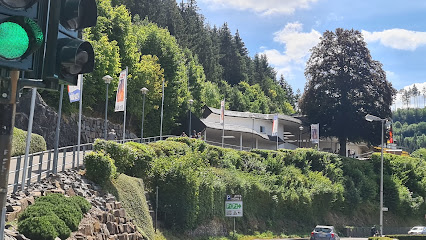
Altena Castle
Explore the rich history and stunning views of Altena Castle, a medieval gem nestled in the heart of Germany's scenic landscapes.
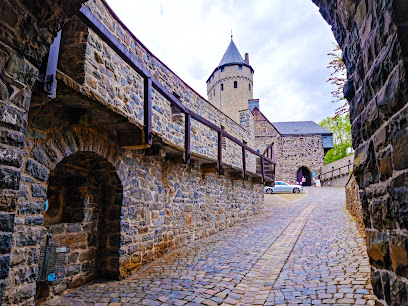
Bruchhauser Steine
Explore Bruchhauser Steine, a breathtaking nature preserve in Olsberg, Germany, offering stunning rock formations, scenic hiking trails, and rich wildlife.
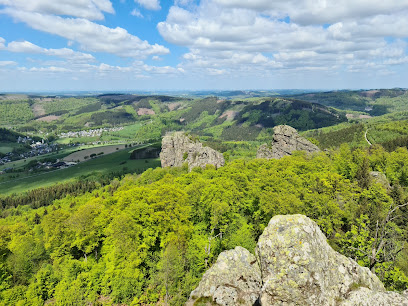
Bilsteinhöhlen Warstein
Explore the breathtaking Bilsteinhöhlen Warstein, a stunning natural wonder featuring captivating caves and a vibrant wildlife park in Germany.
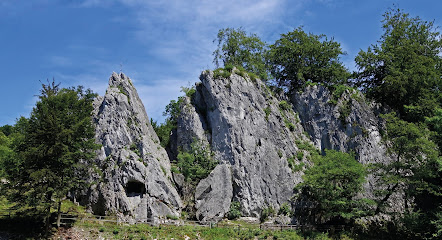
Erlebnisberg Kappe
Discover the thrill of adventure and the beauty of nature at Erlebnisberg Kappe, a family-friendly amusement park in Winterberg, Germany.
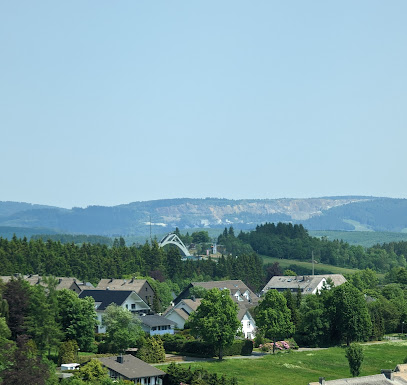
Freizeitwelt Sauerland Schmallenberg
Explore Freizeitwelt Sauerland, an exhilarating amusement park in Schmallenberg, offering thrilling rides and family fun in the heart of Germany's Sauerland region.
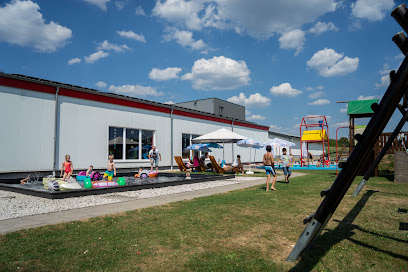
Himmelstreppe
Discover the natural beauty and tranquility of Himmelstreppe at Hennesee, the perfect destination for outdoor adventures and scenic views in Meschede.
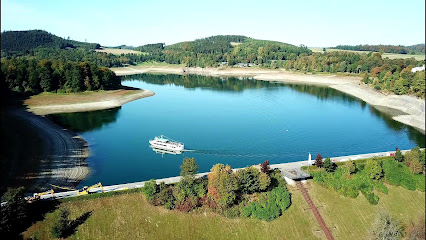
Airlebnisweg Amecke
Explore the stunning Airlebnisweg Amecke, a serene hiking area in Sundern, Germany, perfect for nature lovers and outdoor adventurers.
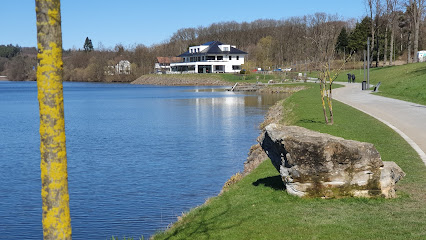
Luerwald
Discover tranquility at Luerwald, a beautiful nature preserve in Arnsberg, where lush landscapes and diverse wildlife await.
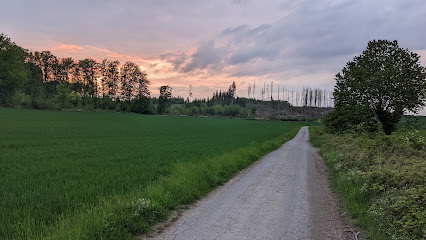
Sauerland-Museum
Explore the Sauerland-Museum in Arnsberg for an enriching journey through art and history in the heart of Germany.
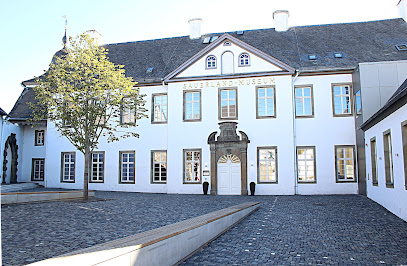
Naturpark Sauerland Rothaargebirge
Discover the beauty and tranquility of Naturpark Sauerland Rothaargebirge, a national reserve perfect for hiking, wildlife watching, and outdoor adventures.
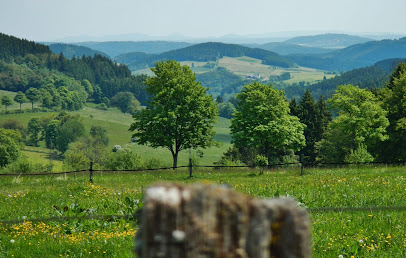
Neuer Hagen
Discover the untouched beauty of Neuer Hagen, a nature preserve in Winterberg, Germany, inviting you to explore its lush landscapes and serene hiking trails.
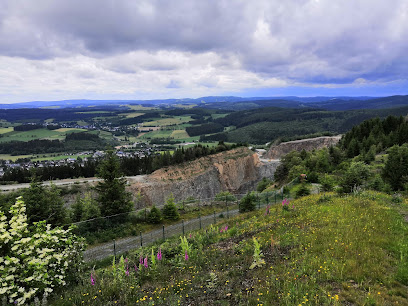
Burg Bilstein
Explore the historical marvel of Burg Bilstein in Lennestadt, a perfect blend of medieval charm and stunning nature for all travelers.
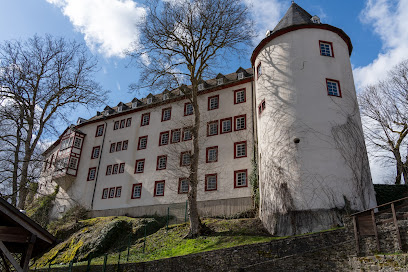
Burg Hachen
Discover the historical allure and scenic beauty of Burg Hachen, a must-visit landmark in the Sauerland region, ideal for hiking and cultural exploration.
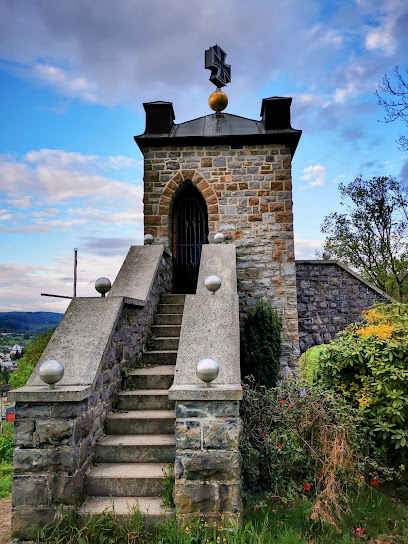
Sauerland-Pyramiden
Explore Sauerland-Pyramiden, a unique tourist attraction in Lennestadt, where nature meets culture in stunning surroundings.
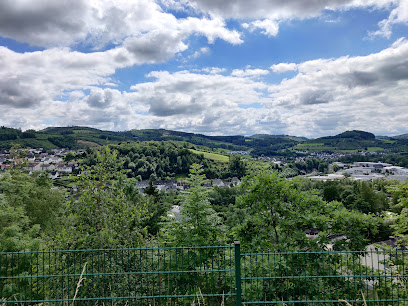
Unmissable attractions to see
Panorama Park
Explore Panorama Park: A Thrilling Wildlife Park Experience with Toboggan Rides and Family Fun in Kirchhundem, Germany.
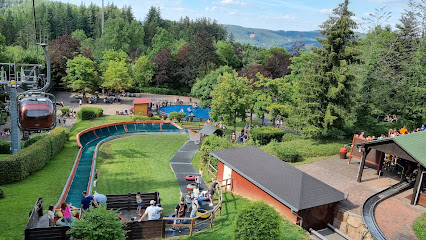
Bruchhauser Steine
Explore Bruchhauser Steine, a stunning natural landmark in Germany, featuring breathtaking views, hiking trails, and rich historical significance.
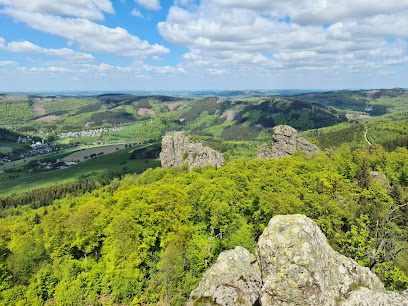
Bilsteinhöhlen Warstein
Explore the stunning limestone formations and vibrant wildlife at Bilsteinhöhlen Warstein, a must-visit natural wonder in Germany.
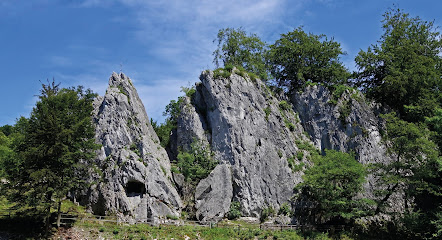
Sauerländer Besucherbergwerk Ramsbeck
Discover the fascinating world of mining at Sauerländer Besucherbergwerk Ramsbeck, a unique underground tourist attraction steeped in history.
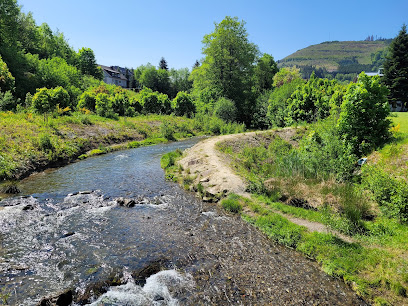
Erlebnisberg Kappe
Experience the thrill of adventure and the beauty of nature at Erlebnisberg Kappe in Winterberg, a must-visit amusement park for every traveler.
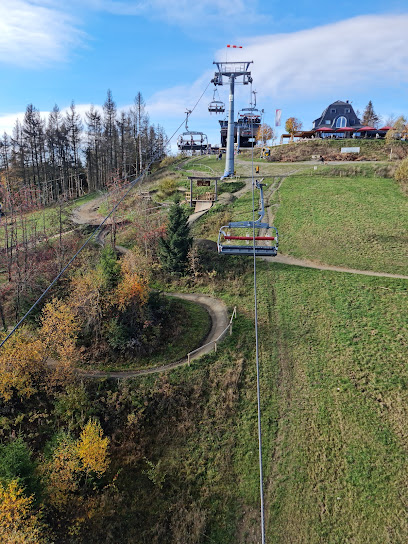
Ruhr Quelle
Explore the natural wonders of Ruhr Quelle in Winterberg, where adventure meets tranquility amidst stunning landscapes and diverse wildlife.
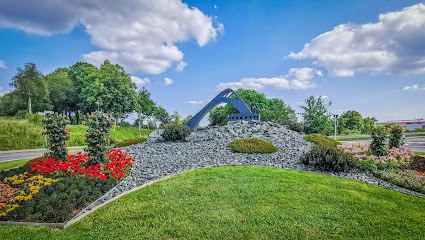
Galileo Park
Discover the interactive world of science at Galileo Park, a captivating museum in Lennestadt, Germany, surrounded by stunning natural beauty.
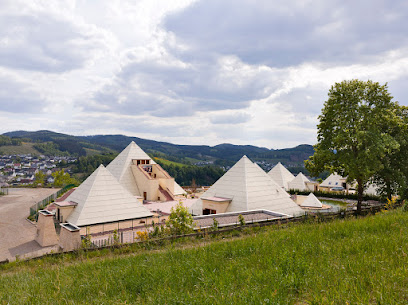
Himmelstreppe
Experience breathtaking views and serene nature at Himmelstreppe by Hennesee, a must-visit tourist attraction in Meschede, Germany.
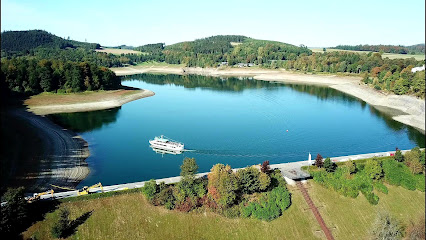
Airlebnisweg Amecke
Experience the serene beauty of Airlebnisweg Amecke, a premier hiking destination in Sundern, showcasing nature's wonders in every season.
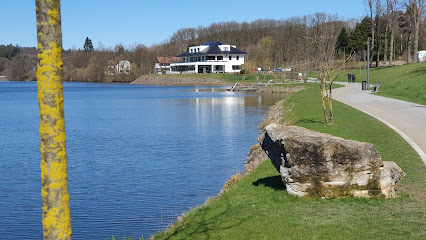
Plästerlegge
Explore the breathtaking Plästerlegge Waterfall in Bestwig, a serene escape into nature with stunning views and tranquil hiking trails.
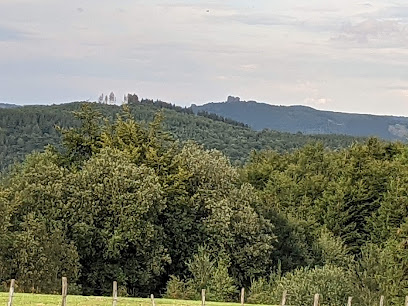
DampfLandLeute – MUSEUM ESLOHE Museumsverein Eslohe e.V.
Explore the captivating history of steam engines at DampfLandLeute Museum in Eslohe, where innovation meets tradition in a vibrant setting.
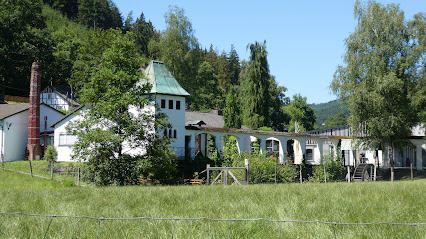
Sauerland-Museum
Explore the rich cultural heritage of Sauerland at the captivating Sauerland Museum in Arnsberg, a must-visit for every traveler.
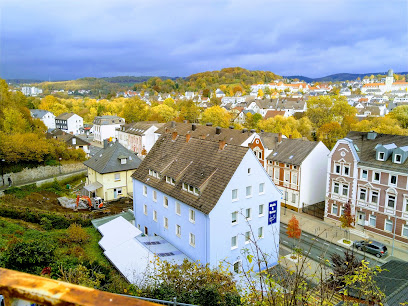
Burg Eversberg
Explore the historical grandeur of Burg Eversberg, a captivating castle in Meschede offering stunning views and rich cultural heritage.
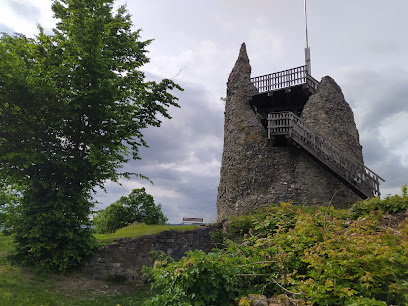
Naturpark Sauerland Rothaargebirge
Experience the natural splendor of Naturpark Sauerland Rothaargebirge, a German national reserve brimming with scenic trails and rich biodiversity.
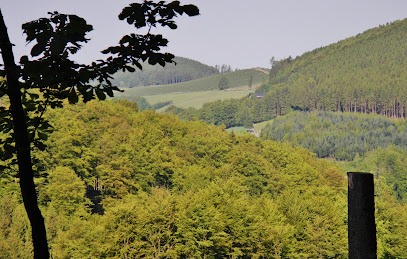
Wilzenberg Turm
Discover the stunning views and rich history at Wilzenberg Turm in Schmallenberg, a perfect blend of nature and culture for every traveler.
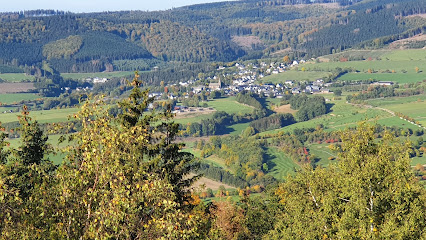
Essential places to dine
Steinbergs Wildewiese
Discover Steinbergs Wildewiese: A delightful restaurant and hotel nestled in Sauerland's scenic landscapes, offering exquisite cuisine and warm hospitality.
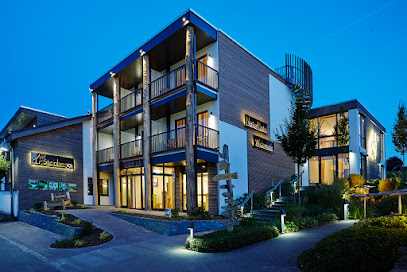
Xavers Ranch
Experience delightful dining and natural beauty at Xavers Ranch in Meschede—perfect for families and food lovers alike.
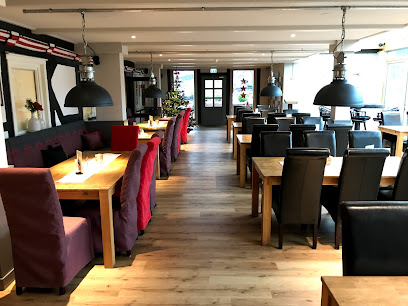
Die Sperre
Discover exquisite dining at Die Sperre in Winterberg - where culinary artistry meets breathtaking scenery.
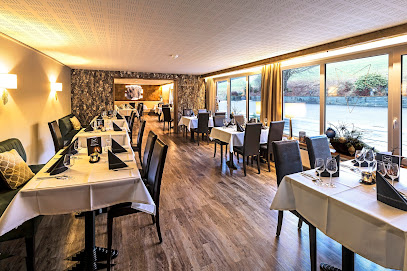
Landgasthof Seemer
Experience authentic German cuisine and hospitality at Landgasthof Seemer's inviting restaurant and picturesque beer garden in Sauerland.
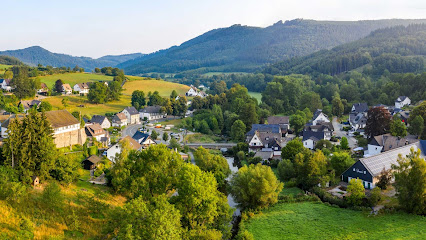
Landgasthof Kleiner
Discover authentic German cuisine at Landgasthof Kleiner, where tradition meets comfort in the heart of Sauerland.
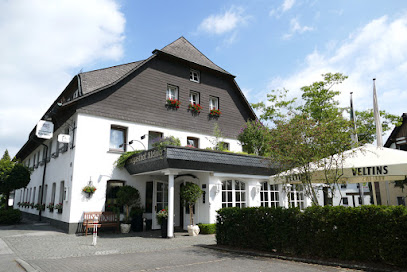
Leckerland Eslohe
Discover delicious pizzas and fast food at Leckerland Eslohe - a delightful dining spot in the heart of Sauerland.
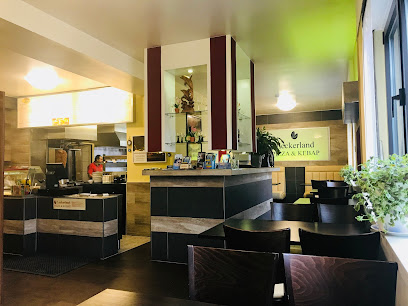
Landidyll Hotel und Restaurant Haus Hochstein
Experience exquisite European dining and warm hospitality at Landidyll Hotel und Restaurant Haus Hochstein in picturesque Sauerland.
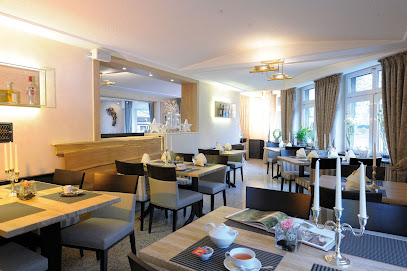
Landhotel Donner
Discover comfort and exquisite dining at Landhotel Donner in Meschede - your gateway to culinary delights and scenic beauty.
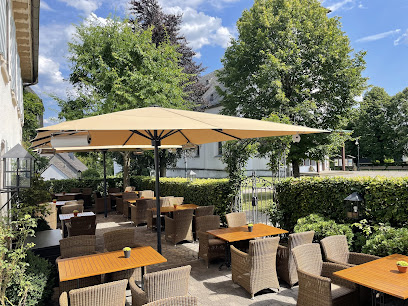
Hotel Hennemann
Experience relaxation and recreation at Hotel Hennemann in beautiful Sauerland – where comfort meets nature's charm.

Restaurant Laudis Sauerlandstuben
Experience authentic German cuisine at Restaurant Laudis Sauerlandstuben in Meschede, where tradition meets taste in a cozy setting.
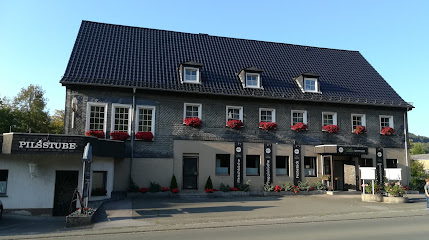
Landhotel /Restaurant Zur Schmitte
Experience authentic German cuisine at Landhotel / Restaurant Zur Schmitte in Westernbödefeld - a culinary gem surrounded by nature's beauty.
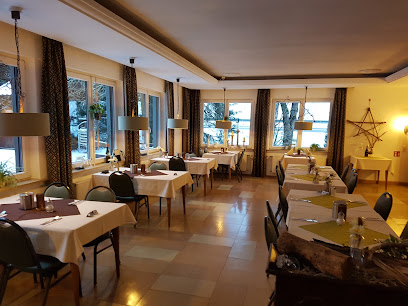
Esloher Brauhaus - Essel Bräu
Discover handcrafted beers and authentic German cuisine at Esloher Brauhaus - Essel Bräu in beautiful Sauerland.
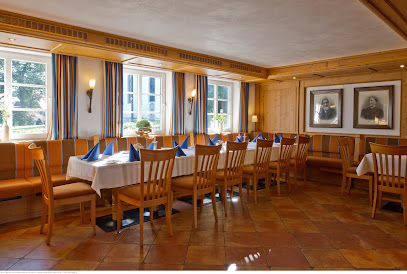
Landhotel und Wandergasthof Sauerländer Hof und Beckmanns Restaurant
Experience authentic German hospitality at Landhotel und Wandergasthof Sauerländer Hof with stunning views and delicious local cuisine.

Kaptain
Discover Kaptain in Eslohe – A charming café offering delicious breakfasts, fresh coffee, and delightful pastries in a cozy setting.
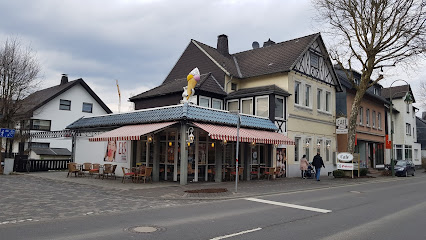
Landgasthof Schmitt-Degenhardt
Discover authentic German cuisine at Landgasthof Schmitt-Degenhardt in Finnentrop - where tradition meets taste in a cozy atmosphere.
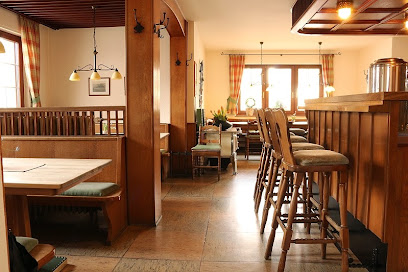
Markets, malls and hidden boutiques
CENTERSHOP Eslohe
Explore the affordable shopping paradise at CENTERSHOP Eslohe, featuring a diverse range of products from groceries to seasonal goods.
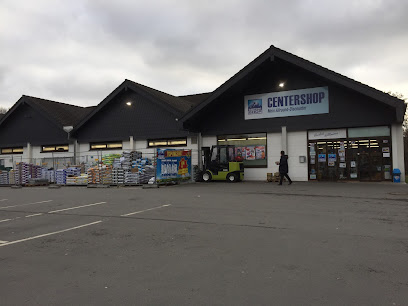
Siebrichshausen`s Weltbiere
Discover a world of flavors at Siebrichshausen's Weltbiere, Eslohe's premier beer store featuring an extensive selection of local and international brews.
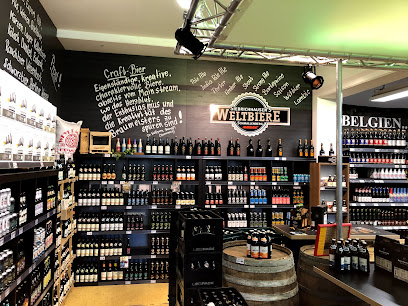
Lebenslänglich Tattoo Sauerland
Discover exceptional tattoo artistry in Eslohe at Lebenslänglich Tattoo Sauerland, where your vision becomes a stunning reality.
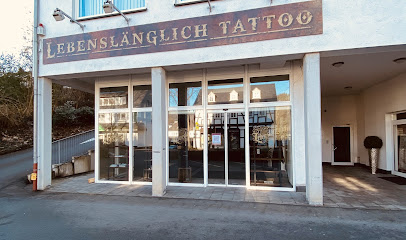
The factory - Sundern
Discover unique candies and essential home goods at The Factory, a vibrant outlet store in Sundern, perfect for every shopaholic.
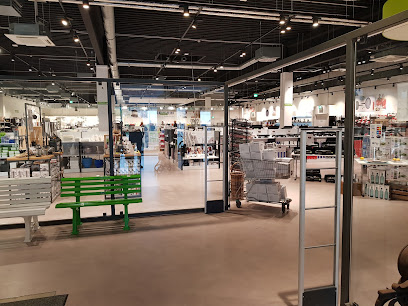
Tintenfaß
Discover unique gifts, books, and toys at Tintenfaß in Eslohe, a charming destination for treasures that celebrate German craftsmanship.
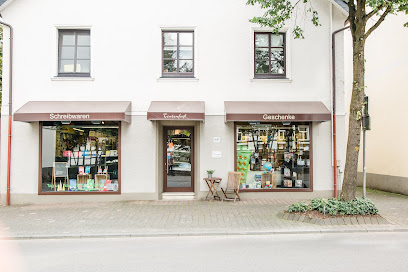
Perfect Day
Discover your dream wedding dress at Perfect Day, Eslohe's charming bridal shop with exquisite selections and personalized service.
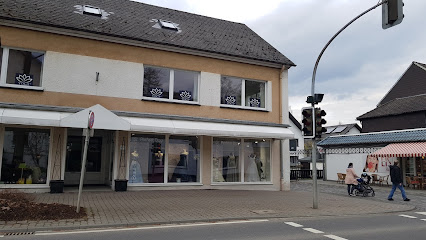
JYSK Eslohe
Explore JYSK Eslohe for stylish and affordable furniture that transforms your living spaces into a cozy retreat.
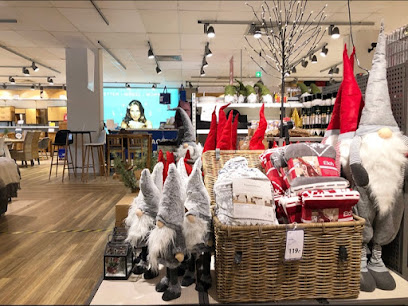
GEFU Outlet
Explore high-quality kitchenware and home goods at GEFU Outlet in Eslohe, a shopper's paradise in the scenic Sauerland region.
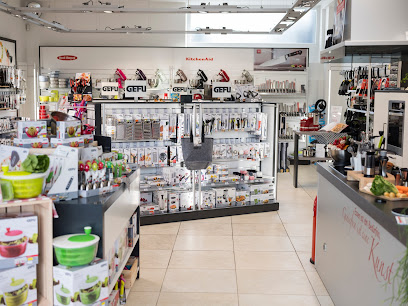
KLUTE - DIE HOFGALERIE in Schmallenberg - Klutes Land-Art
Explore KLUTE - Die Hofgalerie in Schmallenberg for exquisite jewelry and captivating art pieces that embody regional creativity and charm.
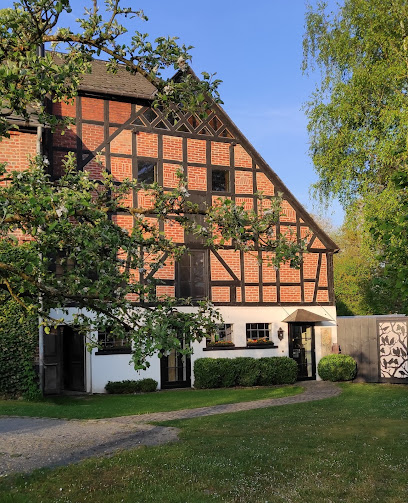
DEICHMANN
Explore stylish and affordable footwear at DEICHMANN in Eslohe, the perfect stop for shoe lovers in the heart of Sauerland.
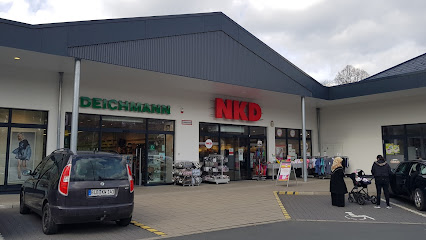
Mein Lädchen
Explore Mein Lädchen in Eslohe for an exquisite array of local beers, wines, and unique gifts, capturing the essence of Sauerland's culinary delights.
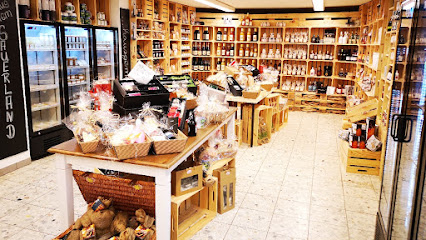
WALDDESIGNERIN - SAUERLAND
Explore the charm of Sauerland with unique gifts, wines, and liquors at WALDDESIGNERIN, a must-visit for every traveler.
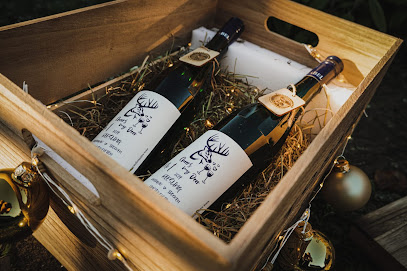
Modehaus Stinn Eslohe
Explore the latest fashion trends at Modehaus Stinn in Eslohe, the ultimate clothing store for denim and stylish accessories.
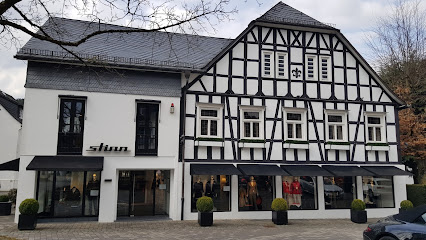
Barbara Hönninger e. Kfr.
Explore the gourmet grocery store Barbara Hönninger e. Kfr. in Eslohe, where local delicacies and artisanal treats await every food lover.
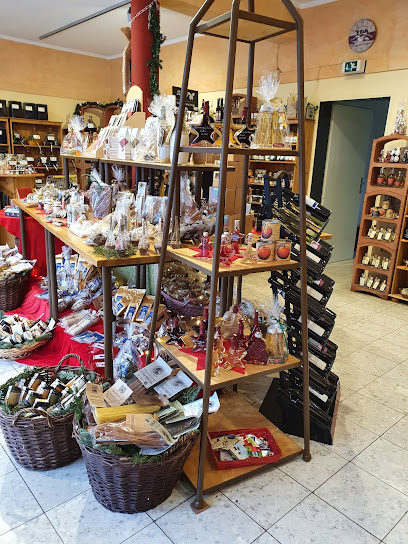
Takko Fashion
Explore a wide range of stylish clothing for all ages at Takko Fashion in Eslohe, where affordability meets quality in fashion.
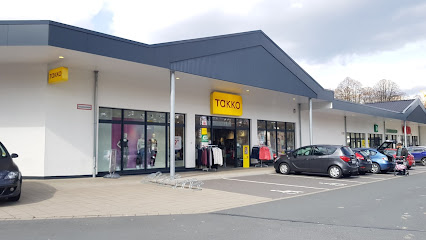
Essential bars & hidden hideouts
Blackwater Irish Pub Winterberg
Discover the warmth of Ireland at Blackwater Irish Pub in Winterberg, where delicious food, great drinks, and lively entertainment await.
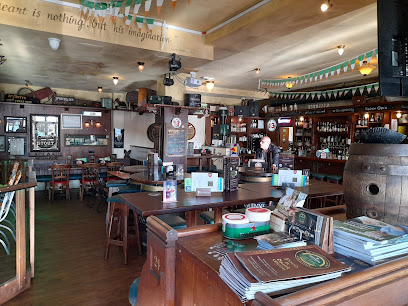
Seilbar
Experience the flavors of Willingen at Seilbar, a cozy gastropub known for its locally sourced dishes and warm ambiance.
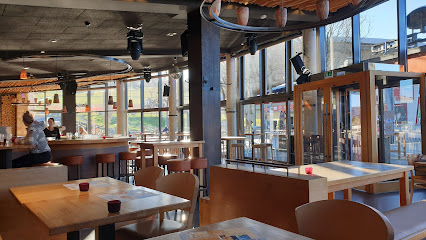
LEOs Bierkeller
Discover the lively ambiance of LEOs Bierkeller, a must-visit pub in Willingen combining great drinks, hearty food, and exciting nightlife.
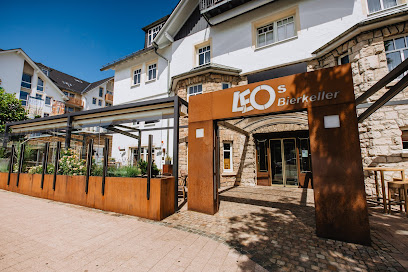
Schirmbar Sorpesee
Experience the perfect blend of scenic beauty and culinary delights at Schirmbar Sorpesee, your ideal lakeside retreat in Sundern.
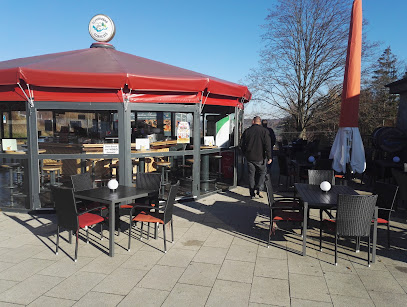
Rockbar-Mateiko
Experience the vibrant atmosphere of Rockbar-Mateiko in Willingen, where great drinks meet breathtaking views and lively entertainment.
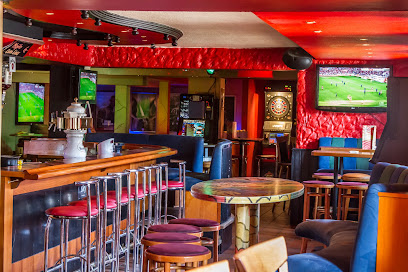
NachfüllBar
Discover the heart of Meschede nightlife at NachfüllBar, where great drinks and warm company await every traveler.
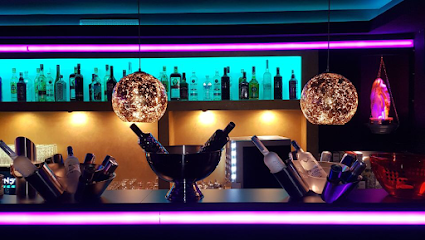
Der Treffpunkt Schmallenberg
Discover the vibrant flavors of Der Treffpunkt Schmallenberg, a top-rated tapas bar and gastropub in the scenic Sauerland region, perfect for food lovers.
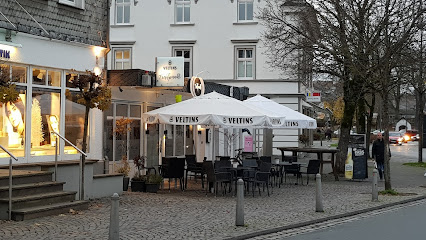
Rockkneipe Tröte
Experience the lively atmosphere at Rockkneipe Tröte, Meschede's top destination for vegan delights, live music, and a vibrant pub culture.
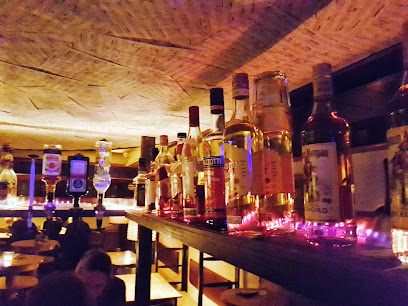
Kotthoff's Theo
Discover the charm of Kotthoff's Theo, a cozy pub in Meschede offering local drinks in a warm and inviting atmosphere.
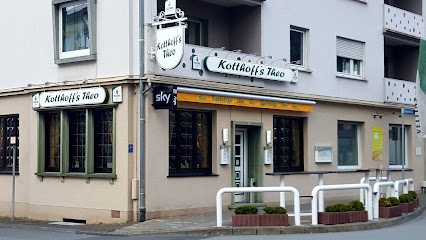
Windsor Pub
Discover Windsor Pub in Arnsberg—your cozy bar for drinks, food, and unforgettable nights filled with laughter and music.
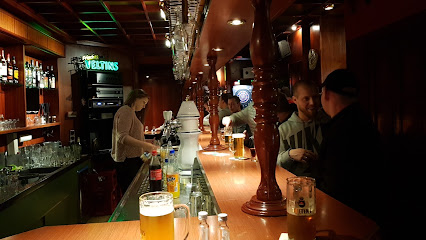
K4
Experience the vibrant nightlife of Bad Fredeburg at K4, a lively bar offering a welcoming atmosphere and a diverse drink selection.
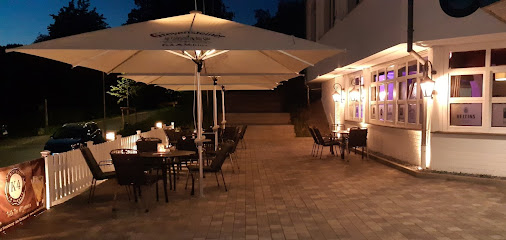
La Vida
Discover La Vida, Sundern's charming bar offering delightful drinks and a cozy atmosphere, perfect for relaxing after exploring the Sauerland region.
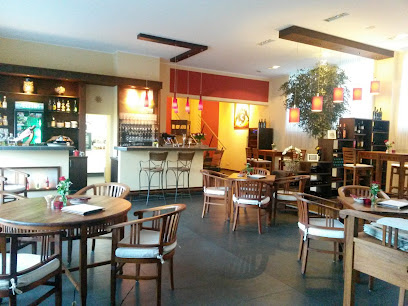
Hessenkeller Winterberg
Experience the vibrant nightlife of Winterberg at Hessenkeller, a lively pub and dance club perfect for tourists seeking fun and local charm.
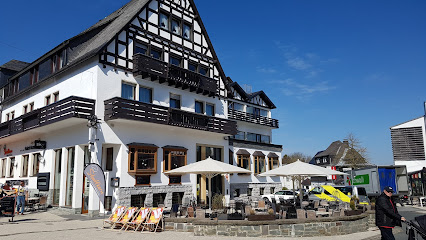
Postkeller Meschede
Experience the heart of Meschede's nightlife at Postkeller, a vibrant pub known for its local brews and warm atmosphere.
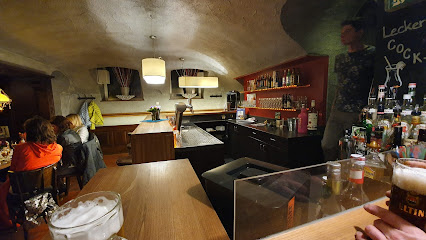
Local Phrases about Sauerland
-
- HelloHallo
[ha-lo] - GoodbyeAuf Wiedersehen
[owf vee-der-zay-en] - YesJa
[ya] - NoNein
[nine] - Please/You're welcomeBitte
[bi-te] - Thank youDanke
[dahn-ke] - Excuse me/SorryEntschuldigung
[ent-shool-di-goong] - How are you?Wie geht es dir?
[vee gayt es deer] - Fine. And you?Gut. Und dir?
[goot oont deer] - Do you speak English?Sprechen Sie Englisch?
[shpre-khen zee eng-leesh] - I don't understandIch verstehe nicht
[ikh fer-shtay-eh nikht]
- HelloHallo
-
- I'd like to see the menu, pleaseIch möchte bitte die Speisekarte sehen
[ikh merkhte bi-te dee shpy-ze-kar-te zay-en] - I don't eat meatIch esse kein Fleisch
[ikh es-se kine flysh] - Cheers!Prost!
[prohst] - I would like to pay, pleaseIch möchte bitte bezahlen
[ikh merkhte bi-te bezah-len]
- I'd like to see the menu, pleaseIch möchte bitte die Speisekarte sehen
-
- Help!Hilfe!
[hil-fe] - Go away!Geh weg!
[gay veg] - Call the Police!Rufen Sie die Polizei!
[roo-fen zee dee po-lee-tsay] - Call a doctor!Rufen Sie einen Arzt!
[roo-fen zee i-nen artsht] - I'm lostIch habe mich verirrt
[ikh ha-be meekh fer-eert] - I'm illIch bin krank
[ikh been krank]
- Help!Hilfe!
-
- I'd like to buy...Ich möchte ... kaufen
[ikh merkhte ... kow-fen] - I'm just lookingIch schaue nur
[ikh shou-eh noor] - How much is it?Wie viel kostet es?
[vee feel kos-tet es] - That's too expensiveDas ist zu teuer
[dahs ist tsoy toy-er] - Can you lower the price?Können Sie den Preis senken?
[ker-nen zee den prise sen-ken]
- I'd like to buy...Ich möchte ... kaufen
-
- What time is it?Wie spät ist es?
[vee shpet ist es] - It's one o'clockEs ist ein Uhr
[es ist iyn oor] - Half past (10)Halb zehn
[halb tsayn] - MorningMorgen
[mor-gen] - AfternoonNachmittag
[nahk-mit-tahk] - EveningAbend
[ah-bent] - YesterdayGestern
[ges-tern] - TodayHeute
[hoi-te] - TomorrowMorgen
[mor-gen] - 1Eins
[ayns] - 2Zwei
[tsvay] - 3Drei
[dray] - 4Vier
[feer] - 5Fünf
[foonf] - 6Sechs
[zeks] - 7Sieben
[zee-ben] - 8Acht
[akht] - 9Neun
[noyn] - 10Zehn
[tsayn]
- What time is it?Wie spät ist es?
-
- Where's a/the...?Wo ist ein/der ...?
[vo ist iyn/der] - What's the address?Wie ist die Adresse?
[vee ist dee ah-dre-suh] - Can you show me (on the map)?Können Sie mir zeigen (auf der Karte)?
[ker-nen zee meer tsai-gen (ouf der kar-te)] - When's the next (bus)?Wann kommt der nächste (Bus)?
[van kohmt der nikh-ste (boos)] - A ticket (to ....)Eine Fahrkarte (nach ....)
[i-nuh fahr-kar-te (nakh)]
- Where's a/the...?Wo ist ein/der ...?
History of Sauerland
-
The Sauerland region, nestled within the state of North Rhine-Westphalia, has a history that stretches back to prehistoric times. Archaeological findings suggest that the area was inhabited as far back as the Neolithic Age. Early settlers were attracted by the rich natural resources, including extensive forests and waterways, which provided ample resources for survival.
-
The Middle Ages saw Sauerland emerge as a region of strategic importance, marked by the construction of numerous castles and fortresses. These structures served as protective bulwarks against invaders and as administrative centers. Notable among them are Castle Altena, which dates back to the early 12th century and is one of the oldest hill castles in Germany, and Castle Bilstein, which has stood since the 13th century.
-
The 19th century brought significant change to Sauerland with the advent of the Industrial Revolution. The region became a hub for mining, particularly of iron and coal, which fueled local industries and economic growth. Towns like Iserlohn and Lüdenscheid developed rapidly during this period, becoming centers for metalworking and manufacturing. The legacy of this era can be seen in the many industrial heritage sites scattered across the region.
-
World War II left indelible marks on Sauerland. The region was strategically important due to its industrial capacity and was subject to numerous air raids. Post-war, Sauerland witnessed significant reconstruction and the reintegration of displaced populations. Memorials and museums today recount the stories of this tumultuous period, preserving the history for future generations.
-
In the latter half of the 20th century, Sauerland experienced a cultural renaissance, with a renewed focus on preserving its historical and natural heritage. This period saw the development of numerous cultural festivals, museums, and nature parks that celebrate the region's rich history and natural beauty. Towns like Winterberg and Willingen have become popular tourist destinations, known for their winter sports and outdoor activities.
-
Today, Sauerland is a vibrant region that seamlessly blends its historical legacy with modern amenities. It is renowned for its picturesque landscapes, including the Rothaargebirge mountains and numerous lakes like the Biggesee. The region also boasts a thriving cultural scene, with annual events such as the Sauerland-Herbst music festival attracting visitors from around the world.
Sauerland Essentials
-
Sauerland is located in North Rhine-Westphalia, Germany. The nearest major airports are Dortmund Airport (DTM) and Düsseldorf International Airport (DUS). From these airports, you can take a train or rent a car to reach Sauerland. The Deutsche Bahn (DB) railway network connects Sauerland to major German cities like Dortmund, Cologne, and Frankfurt. If driving, the A45 and A46 highways offer direct routes to Sauerland.
-
Sauerland has a well-developed public transportation system, including buses and regional trains operated by Deutsche Bahn. For more flexibility, consider renting a car, especially if you plan to explore the rural areas and natural parks. Biking is also popular, with numerous well-marked cycling routes. Taxis and rideshare services like Uber are available in larger towns but might be scarce in more remote areas.
-
The official currency in Germany is the Euro (EUR). Credit and debit cards are widely accepted in hotels, restaurants, and shops, but it’s advisable to carry some cash for smaller establishments and markets. ATMs are readily available in towns and cities. Note that tipping is customary in Germany, usually by rounding up the bill or adding a small amount (around 5-10%).
-
Sauerland is generally a safe destination for tourists. However, like any travel destination, it is advisable to take standard precautions. Avoid leaving valuables in plain sight and be cautious in crowded areas. There are no specific high-crime areas targeting tourists, but it's always best to stay vigilant, especially in larger towns and during local festivals.
-
In case of an emergency, dial 112 for police, fire, or medical assistance. Hospitals and clinics are available in major towns like Arnsberg and Lüdenscheid. Pharmacies (Apotheken) are plentiful and can provide over-the-counter medications. It is advisable to have travel insurance that covers medical emergencies.
-
Fashion: Do dress comfortably and appropriately for the weather, especially if you plan to hike or explore natural parks. Don’t wear overly casual or revealing clothing in formal settings. Religion: Do respect religious customs and sites. Some churches may require modest attire. Public Transport: Do validate your ticket before boarding trains and buses. Don’t talk loudly or play loud music. Greetings: Do greet people with a handshake. A friendly 'Guten Tag' (Good Day) is customary. Eating & Drinking: Do try local specialties like Sauerland ham and Pilsner beer. Don’t leave food on your plate, as it is considered wasteful.
-
To experience Sauerland like a local, visit the weekly markets in towns like Winterberg and Brilon, where you can find fresh produce and local crafts. Engage with locals, who are often friendly and willing to share stories about the area. Don’t miss the opportunity to explore the natural beauty of Sauerland’s forests, lakes, and hiking trails. For a unique experience, visit during the Schützenfest (marksmen's festival), a traditional event celebrated with parades, music, and local food.
Trending Landmarks in Sauerland
Nearby Cities to Sauerland
-
Things To Do in Munster
-
Things To Do in Cologne
-
Things To Do in Bonn
-
Things To Do in Dusseldorf
-
Things To Do in Koblenz
-
Things To Do in Frankfurt
-
Things To Do in Aachen
-
Things To Do in Hannover
-
Things To Do in Maastricht
-
Things To Do in Nijmegen
-
Things To Do in Arnhem
-
Things To Do in Spa
-
Things To Do in Genk
-
Things To Do in Eindhoven
-
Things To Do in Liege












